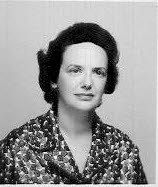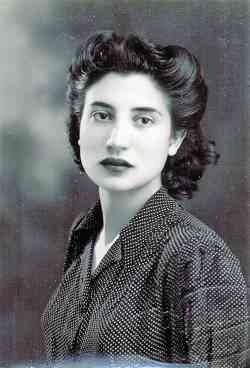Related Research Articles

Maria Lamas was a Portuguese writer, translator, journalist, and feminist political activist.
Sara Beirão was a Portuguese writer, journalist, women's rights activist and philanthropist. As an author, she is particularly known for fiction aimed at children and youth and for her work as publisher and editor of the Alma feminina feminist magazine.
Elina Guimarães (1904-1991) was a writer and feminist leader in Portugal during the middle of the 20th century.

Maria Luísa Costa Dias (1916–1975), was a Portuguese medical doctor and communist activist in opposition to the authoritarian Estado Novo government.

Ana Vicente was an Anglo-Portuguese writer with a strong Catholic faith, known for her support for feminist causes.

Deolinda Lopes Vieira, a primary school teacher, was an anarcho-syndicalist activist and a feminist, who played an important role in Portugal's Conselho Nacional das Mulheres Portuguesas.
Regina Tavares da Silva is a Portuguese politician, feminist, historical researcher and an international expert on women's rights. She has chaired several women's organizations, both Portuguese and international. She is arguably best known for her insistence that women's equality should not be treated as a social issue but as a requirement of both democracy and human rights.

Maria Antónia Palla is a journalist, writer and feminist who was one of the first female journalists in Portugal. She played an important role in the legalization of abortion in the country, by promoting the practice in interviews and television programmes. In 2004 Palla was awarded the title of Commander of the Order of Liberty. She is the mother of António Costa, the current Prime Minister of Portugal.
Helena Neves was an active Portuguese communist and feminist and an opponent of the Estado Novo regime in Portugal, being imprisoned on three occasions. She became a successful journalist and was a deputy in the Portuguese parliament, the Assembly of the Republic, in 2001–02. She was also a professor on gender and the women's movement at the Universidade Lusófona in Lisbon.

The Associação Feminina Portuguesa para a Paz was a female pacifist association created in 1935 and dissolved by the Esdado Novo dictatorship in 1952. It had active groups in Lisbon, Coimbra and Porto. Although declaring itself apolitical, many of its members were anti-fascists opposed to the Estado Novo. Its activities involved providing support to prisoners of war, and it organized lectures, exhibitions, and other events as a way to disseminate the principles of World Peace. In the last decade of its existence, it became increasingly opposed to the Government, in response to increased repression. The Association published an occasional Bulletin and had a children's choir, directed by Francine Benoît.

Stella Piteira Santos (1917-2009) was a Portuguese communist who opposed the Estado Novo dictatorship. Arrested and tortured in Lisbon, she subsequently moved to Algeria, from where she helped broadcast programmes of Rádio Voz da Liberdade to Portugal.

Maria Alda Nogueira (1923–1988) was a communist and feminist activist who opposed Portugal's Estado Novo regime and spent nine years as a political prisoner. After the overthrow of the Estado Novo she became a parliamentary deputy, serving in the National Assembly for a decade.
The Movimento Democrático de Mulheres is a Portuguese non-governmental women's association. It was created in 1968 by groups opposed to the Estado Novo regime and continued after the overthrow of the regime in 1974.

Maria Lucília Estanco Louro (1922-2018) was a Portuguese pacifist and opponent of the authoritarian Estado Novo regime, who became known as a teacher and political activist.

Beatriz Arnut, was a Portuguese writer, poet, civil servant and defender of women's rights.
Etelvina Lopes de Almeida (1916–2004) was a Portuguese writer, journalist, broadcaster and a deputy for the Portuguese Socialist Party (PS) in the Assembly of the Republic.

Isabel Moreira is a Portuguese jurist and politician of the Socialist Party (PS) who has been serving as a member of the Assembly of the Republic since 2011. She is known for her campaigns in favour of LGBT rights.
Ester de Lemos, sometimes written as Esther, is a university professor, translator and Portuguese writer. A supporter of the Estado Novo regime, she was a member of the National Assembly of Portugal between 1965 and 1969.
Irene Flunser Pimentel is a Portuguese historian who concentrates on the study of the 20th century in Portugal, particularly during the time of the Estado Novo regime, with particular reference to the experiences of women.
Maria Lúcia Amaral is a Portuguese lawyer, university professor, politician and judge. She was vice-president of the Constitutional Court of Portugal and is Portugal's 10th Ombudsman, being the first woman to hold this post.
References
- 1 2 3 4 Lemos, Maria Alzira (2005). Faces de Eva (13) (PDF). Colibri Editions / Universidade Nova de Lisboa. pp. 181–184. Retrieved 3 January 2021.
- 1 2 3 4 5 Feminae – Dicionário Contemporâneo. Lisbon: COMISSÃO PARA A CIDADANIA E A IGUALDADE DE GÉNERO. 2013. p. 498. ISBN 978-972-597-373-8 . Retrieved 24 December 2020.
- 1 2 3 4 5 Tavares, Maria Manuela Paiva Fernandes (2008). FEMINISMOS EM PORTUGAL (1947-2007) (PDF). Lisbon: Universidade Aberta. pp. 346–349. Retrieved 3 January 2021.
- 1 2 3 4 "Alzira Lemos: Uma militante feminista – uma modesta homenagem". Rede Portuguesa de Jovens para a Igualdade de Oportunidades entre Mulheres e Homens. Retrieved 3 January 2021.
- ↑ "Sobre nós". Plataforma Portuguesa para os Direitos das Mulheres. Retrieved 3 January 2021.
- ↑ Portugal, Rádio e Televisão de. "Parlamento aprova voto de pesar pela morte de Maria Alzira Lemos (PS)". RTP. Retrieved 3 January 2021.